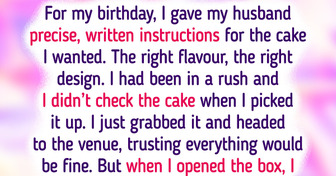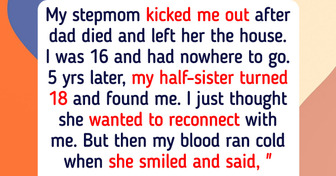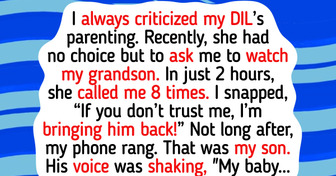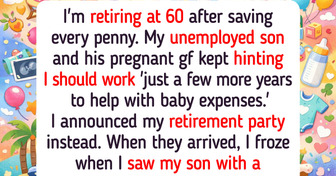12 Single Dads Share Their Most Emotional Stories

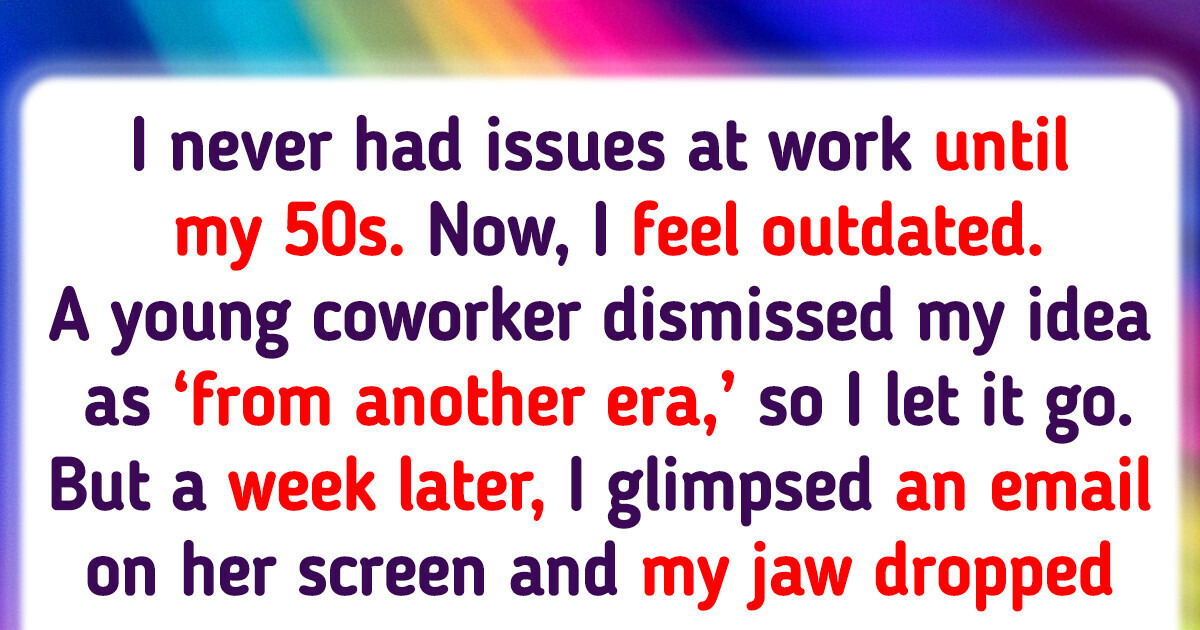
Navigating workplace relationships can be challenging, especially when faced with difficult colleagues. Whether it’s dealing with credit-stealing coworkers, passive-aggressive teammates, or micromanaging bosses, keeping your composure is key to maintaining professionalism and peace of mind. Here are real-life experiences from readers along with expert-backed advice on handling tough workplace situations without losing your cool.

“I never had issues at work until my 50s. Now, I feel outdated. A young coworker dismissed my idea as ‘from another era,’ so I let it go.
But a week later, I glimpsed an email on her screen, and my jaw dropped when I saw she had presented my idea to our boss, even using parts from other projects of mine as her own. I couldn’t believe it. It was as if she had taken my words and polished them enough to make them pass as new.
Of course, she got all the credit at the next meeting, and everyone was singing her praises. That’s when I realized I had to speak up—not just for myself, but for anyone who might be tripped up by this ‘new era’ of office politics.”
What You Can Do:
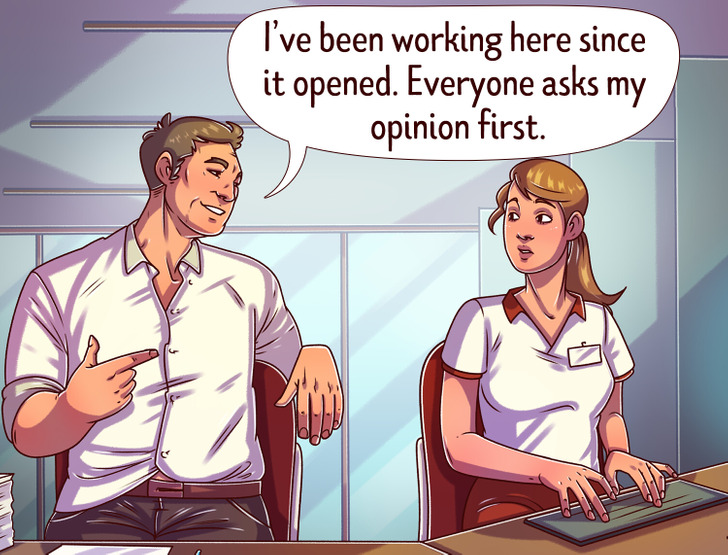
“Every time I completed a big project, my coworker would make these underhanded comments. ‘Wow, you actually finished it on time?’ or, ‘Interesting approach—I never would have thought to do it that way.’
At first, I tried to ignore it, but over time, it got under my skin. The worst part? Whenever I brought it up, she would act like I was imagining things. ‘Oh, I didn’t mean anything by it,’ she’d say with a smirk. But I knew better.”
How to Handle It:
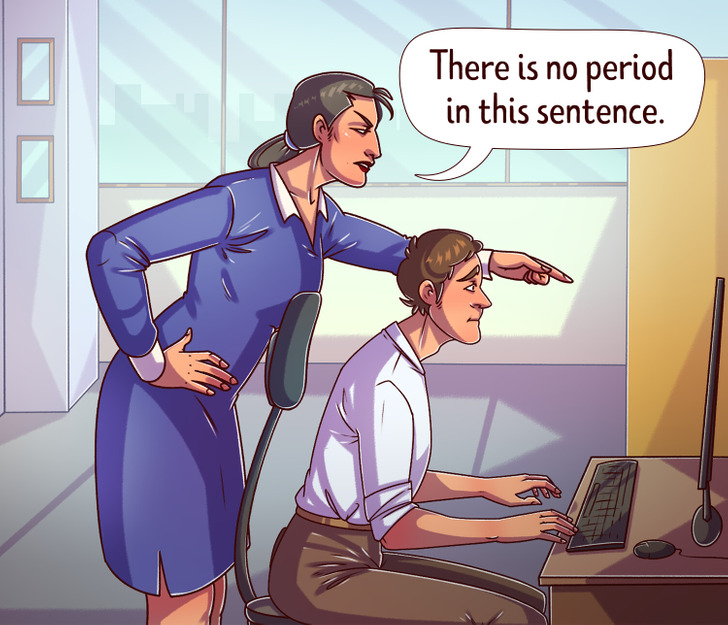
“My boss would correct every little detail, from the phrasing of my emails to the fonts I used. I started feeling like I couldn’t do anything right. He even questioned why I wrote ‘Best’ instead of ‘Sincerely’ in my emails! No matter how competent I was, he never seemed satisfied.”
How to Set Boundaries:

“I found out a coworker was spreading rumors that I was difficult to work with. Suddenly, I noticed people being colder toward me. I had no idea what was being said, but I knew I had to address it before it damaged my reputation.”
How to Handle Workplace Gossip:
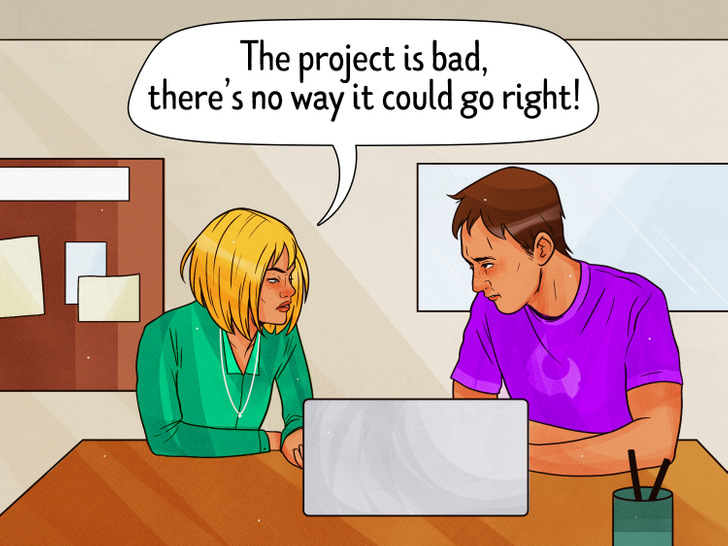
“One coworker, Dave, constantly complained about everything—the workload, the meetings, the coffee, the weather. His negativity was draining, and he never offered solutions.”
How to Stay Sane:

“No matter what I accomplished, a coworker, Jake, had to one-up me. If I finished a project early, he’d say, ‘Well, I finished mine in half the time.’ If I got praise from our manager, he’d immediately mention something he did.”
How to Handle It:

“I was paired with a coworker, Mark, on a major project. I did my half on time. Mark, however, kept missing deadlines and showing up late to meetings. Every time I checked in, he had an excuse—‘Got caught up with another task,’ ‘Didn’t see the email,’ ‘Had a family emergency.’
By the time he actually submitted his part, it was so rushed that I had to redo half of it myself. I finally decided I wouldn’t keep covering for him.
Instead, I started CC’ing our boss on all deadline-related emails. I also asked in meetings, ‘Mark, do you think you’ll need an extension, or should we notify leadership about the delay?’ Suddenly, he started getting things done on time.”
How to Handle It:

“Whenever I spoke in meetings, my coworker, Steve, would interrupt within seconds. It got so bad that I started avoiding speaking up at all. Finally, during a big presentation, he cut me off mid-sentence, and I decided enough was enough.
I calmly said, ‘Steve, I’d love to finish my thought first—then I’d be happy to hear your perspective.’ He looked stunned, but he stopped interrupting. After that, I made a habit of continuing to speak whenever he tried to cut in.”
How to Handle It:
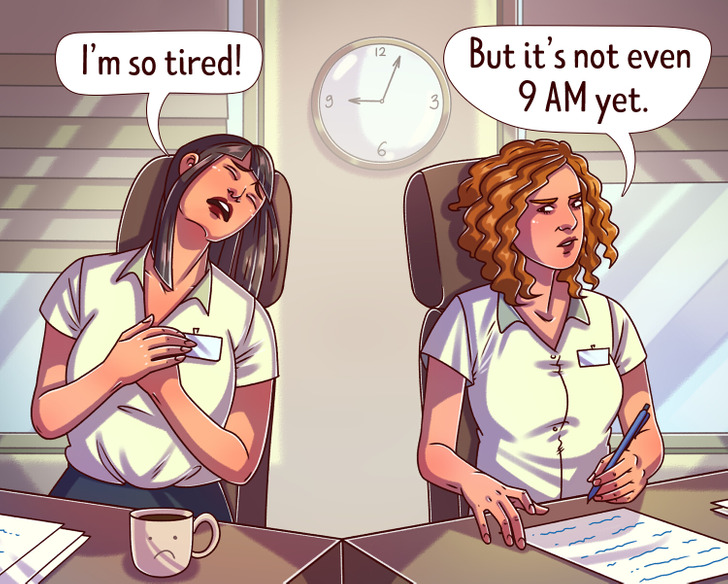
“My coworker, Rachel, made every minor issue into a disaster. If someone made a typo, she acted like it ruined the whole project. If an email wasn’t answered within an hour, she’d panic and start calling everyone.
One day, she ran into my office saying, ‘We have an emergency!’ I braced myself for bad news, only to find out the ‘emergency’ was that the printer was jammed.
That’s when I realized she wasn’t looking for solutions—she thrived on drama and chaos. So, I stopped feeding into it. The next time she overreacted, I responded calmly and factually. When she saw I wouldn’t engage in the panic, she found someone else to dramatize with.”
How to Handle It:

“At first, I thought my coworker, Dave, was just ‘that guy’—the one who always had a joke for everything. But over time, his jokes got more uncomfortable.
At meetings, he’d say things like, ‘Careful, don’t let Sarah do the math—she’s a woman, after all!’ He made offhand comments about people’s appearances and laughed them off as harmless fun.
One day, he made a joke about my ethnicity, and I decided enough was enough. I calmly looked at him and said, ‘That’s not funny. I’d appreciate it if you kept things professional.’ He chuckled awkwardly, but never made another comment like that again.”
How to Handle It:
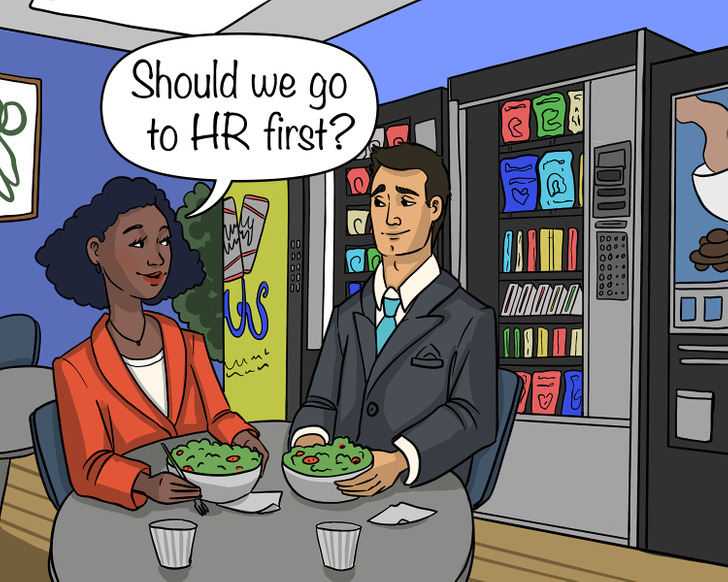
“I brought my homemade lunch to work every day—until I noticed it kept disappearing from the fridge. At first, I thought I was imagining things, but one day, I caught my coworker eating my labeled lunch at his desk
I confronted him, and he just laughed. ‘Oops! I thought it was mine. Besides, you always bring the best meals.’
That’s when I decided to get creative. The next day, I brought in a sandwich filled with way too much wasabi. After that, my food magically stopped disappearing.”
How to Handle It:
Dealing with difficult people can be exhausting, but sometimes, the real challenge isn’t just the person, but the environment they create. If you find yourself constantly walking on eggshells or feeling drained by the negativity, it might be time to consider a different approach. In our next article, we’ll explore seven strategies for navigating toxic work environments without resorting to confrontation.


